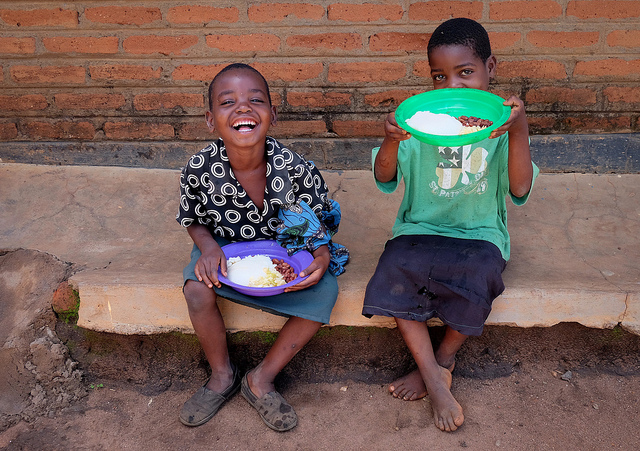The Joseph Food Bank: Pamoza’s Hunger Prevention Plan

Food. It’s a basic need. Yet in Malawi, nearly 4 million people face acute food insecurity defined by the United Nations’ Food and Agriculture Organization as “a person’s inability to consume adequate food, putting his or her life in immediate danger.”
Malawi’s already-fragile food system has been further assaulted by the devaluation of the Malawian kwacha (Malawi’s monetary currency); fertilizer price increases resulting from the war in Ukraine; and Cyclone Freddy, which killed 500 people, displaced half a million people, and washed away more than 86,000 acres of farm land.
The next hungry season (October – March, when people typically start running out of food) is
expected to be bad, unless we act now.
That is why Pamoza is taking action in anticipation of the time of hunger. In April, we launched the Joseph Food Bank Initiative with support from the Tyndale Foundation. We will buy corn while prices are low and store this corn so families can purchase it at-cost during the hungry season. This approach protects families from price gouging during their most vulnerable time.
The name “Joseph Food Bank” was inspired by the Old Testament character who, despite facing immense challenges and setbacks, rose to become a trusted advisor to the Pharaoh of Egypt. During a severe famine, God gave Joseph the foresight to implement a visionary plan to store grain during years of abundance, ensuring that there would be enough food to sustain the people during times of scarcity. Pamoza has adopted this wise plan to combat hunger. Our Food Bank aims to show compassion and offer hope by providing sustenance and support to those in need in communities in Malawi, just as God did for the people of Egypt.
Austin Kalungu, shown in the video below fixing one of the buildings, told us, “This year there will be terrible hunger. Pamoza’s program will be very helpful because people will be able to find corn they can afford right here.”
We’re excited to report that we have completed Phase 1 of the Joseph Food Bank: renovating three buildings to store corn, the staple food in Malawi. Phase 2 will be to purchase corn and hire staff. Properly staffing and securing the three buildings will be essential because we have already seen an increase in food theft as the price of corn has skyrocketed to unprecedented levels.
